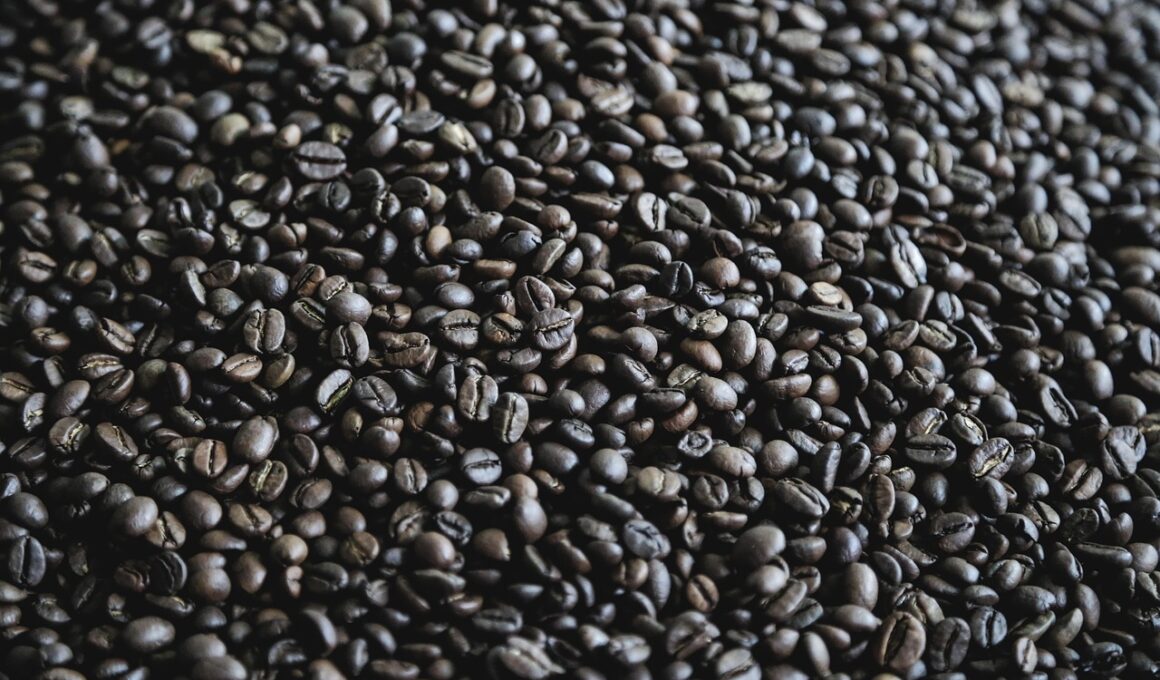The Benefits of Caffeine as a Performance Enhancer in Sports
Caffeine, a central nervous system stimulant, has gained widespread recognition in the sports world for its potential to enhance athletic performance. Studies indicate that caffeine can improve endurance and reduce perceived exertion during physical activities. This effect is largely attributed to its ability to increase adrenaline levels and elevate the release of fatty acids from fat tissues, providing athletes with a readily available energy source. While many athletes resort to caffeine consumption before competitions, understanding the optimal dosage and timing can lead to better results. Consuming caffeine approximately 30 to 60 minutes before a workout may be optimal for boosting performance. However, individual responses to caffeine can vary significantly, influenced by factors such as tolerance, body weight, and genetics. Therefore, some athletes may find greater benefits from caffeine, while others may experience jitters or adverse effects at similar doses. Overall, caffeine remains a popular choice among athletes aiming to enhance their performance while minimizing fatigue. With so many forms available, from caffeinated beverages to pills, athletes can tailor their caffeine intake according to their preferences and needs.
Besides its ergogenic effects, caffeine has been studied for its potential role in improving cognitive functions during strenuous exercise. For example, caffeine can enhance alertness and concentration, crucial for athletes participating in high-pressure environments. Improved mental acuity not only allows athletes to react better during competition but also aids in strategic decision-making. Moreover, caffeine’s impact on endurance sports such as cycling and running cannot be overstated. Many endurance athletes rely on caffeine as a crucial component of their training regimen to maintain high levels of performance across longer durations. Research indicates that caffeine intake may significantly reduce the time taken to complete endurance events by delaying fatigue and enhancing overall performance output. To leverage this benefit, athletes often experiment with various caffeine sources, including coffee, energy gels, and energy drinks. Infusing their pre-competition routine with caffeine may lead to noticeable performance improvements. Nevertheless, it is essential to note that reliance solely on caffeine is not advisable. Athletes should still prioritize sufficient rest, nutrition, and training to maximize their competitive advantages, as caffeine is merely a supplementary aid.
Caffeine and Weight Management
Caffeine is known for its thermogenic properties, which can be beneficial for athletes seeking to manage body composition. By increasing metabolic rate and promoting fat oxidation, caffeine helps physical performance and assists in weight management strategies. Athletes often incorporate caffeine to enhance fat utilization, especially during prolonged exercise sessions, leading to an improved body composition over time. Understanding caffeine’s effects on metabolism can allow athletes to leverage its potential while focusing on fitness goals. Besides its fat-burning effects, caffeine can promote greater energy expenditure post-exercise, often referred to as the afterburn effect. This period allows for continued calorie burn even after the workout has concluded. Strategic caffeine consumption can thus be an adjunct to overall weight management plans, especially when coupled with a balanced diet and a regular exercise routine. Although caffeine has its benefits, athletes should be cautious with excessive intake, as it can lead to dehydration and other health concerns. The balance of moderation is key, ensuring that they can reap the advantages of caffeine while maintaining overall health and performance in sports.
Another key factor about caffeine is its legality in sports, enabling athletes to utilize it as a performance enhancer within regulatory frameworks. Caffeine is recognized as a permissible substance by most sports organizations, including the World Anti-Doping Agency (WADA). However, exceeding specific caffeine concentrations in the urine can lead to disqualification, so athletes must remain vigilant about their consumption. Understanding the regulations surrounding caffeine use in competitive sports is essential for athletes aiming to maintain compliance while obtaining its benefits. As professionals continue to investigate caffeine’s impacts on sports performance, they emphasize the importance of personalized approaches based on individual reactions. This approach ensures that athletes can maximize caffeine’s ergogenic properties while minimizing negative side effects. It is observed that some people metabolize caffeine rapidly compared to others; therefore, athletes must tailor their intake individually and through strategic testing. Caffeine’s duality of energizing potential and regulatory constraints makes it worth incorporating into an athlete’s training regimen carefully and wisely.
Potential Side Effects of Caffeine
While caffeine offers various performance-enhancing benefits, it is crucial to acknowledge its potential side effects, especially in sensitive individuals. Common side effects of excessive caffeine intake include jitters, insomnia, elevated heart rates, and digestive issues. Athletes must recognize that although caffeine can elevate performance levels, moderation is vital to avoid these adverse effects. Understanding personal tolerance levels is essential when integrating caffeine into a training routine. Athletes should consider gradually increasing their caffeine intake, allowing their bodies to adapt while monitoring how they feel during practices and competitions. Furthermore, consumption should still be limited to avoid the risk of dependency or tolerance buildup over time. Strategies like cycling off caffeine for specific intervals can help mitigate dependency issues. Evaluating overall daily practices and habits can also play a role in maximizing caffeine’s performance benefits. The ultimate goal is to strike a balance, leveraging caffeine’s advantages as a performance enhancer while preventing detrimental side effects.
Moreover, hydrational factors must also be considered when incorporating caffeine into athletic practices. Caffeine is known to have mild diuretic properties, which means it can lead to increased urine production. This characteristic can pose challenges, as staying hydrated during competition or training is critical for optimal performance. Athletes must be proactive in managing their fluid intake surrounding caffeine consumption, ensuring they balance hydration levels adequately. Some studies suggest that moderate caffeine consumption does not significantly lead to dehydration, especially for regular users. Nonetheless, athletes should remain cautious and prioritize hydration by drinking water or electrolyte-rich beverages to maintain peak performance. Additionally, consuming caffeine through hydrating sources, such as tea or coffee, can be beneficial, as these beverages contain water and may counteract dehydration effects. Incorporating such strategies helps athletes take full advantage of caffeine without sacrificing their hydration status, ultimately enhancing overall performance.
Final Thoughts
In summary, caffeine serves as a popular and widely used performance-enhancing supplement in sports, offering numerous benefits such as improved endurance, cognitive function, and fat oxidation. Understanding the nuances of caffeine consumption, including its dosage and timing can maximize its ergogenic effects while minimizing potential side effects. Athletes keen on leveraging caffeine for competitive advantages should personalize their strategies according to their tolerance and performance goals and stay informed about regulations within their sport. Additionally, they must balance caffeine use with proper hydration and overall health considerations. With such a comprehensive approach, caffeine can effectively enhance athletic performance while contributing to success on the field or in the arena. Future research will continue to unravel the complexity of caffeine’s role in sports nutrition, providing increasing evidence for its benefits. Athletes looking to utilize caffeine can do so strategically, ensuring they achieve peak performance while maintaining safety in their practices. Overall, caffeine remains a powerful ally for athletes, accentuating their abilities and helping them achieve their personal best.
As science continues to evolve, exploration in this field promotes understanding caffeine’s full potential when it comes to sports performance.


